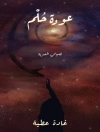The poet Miyazawa Kenji (1896-1933) was an early twentieth-century Japanese modernist who today is known worldwide for his poetry and stories as well as his devotion to Buddhism.
Miyazawa Kenji: Selections collects a wide range of his poetry and provides an excellent introduction to his life and work. Miyazawa was a teacher of agriculture by profession and largely unknown as a poet until after his death. Since then his work has increasingly attracted a devoted following, especially among ecologists, Buddhists, and the literary avant-garde. This volume includes poems translated by Gary Snyder, who was the first to translate a substantial body of Miyazawa’s work into English. Hiroaki Sato’s own superb translations, many never before published, demonstrate his deep familiarity with Miyazawa’s poetry. His remarkable introduction considers the poet’s significance and suggests ways for contemporary readers to approach his work. It further places developments in Japanese poetry into a global context during the first decades of the twentieth century. In addition the book features a Foreword by the poet Geoffrey O’Brien and essays by Tanikawa Shuntaro, Yoshimasu Gozo, and Michael O’Brien.
Spis treści
Contents
List of Illustrations
Foreword: A Modernist in the Mountains
Geoffrey O’Brien
Introduction
A Note on the Translations
POEMS
From Spring & Asura (First Collection)
Proem
Refractive Index
The Snow on Saddle Mountain
Thief
The Thief
Love & Fever
Spring & Asura
Daybreak
Sunlight and Withered Grass
Cloud Semaphore
A Break
Rest
Annelid Dancer (Annelida Tänzerin)
Report
The Landscape Inspector
Haratai Sword-Dancing Troupe
A Mountain Patrolman
Traveler
Bamboo & Oak
Masaniello
The Morning of the Last Farewell
Pine Needles
Pine Needles
Voiceless Grief
White Birds
Okhotsk Elegy
Volcano Bay: A Nocturne
Commandment on No Greed
Love in Religious Mode
Past Desire
Single-Tree Field
Ice Fog in Iihatov
Winter & Galaxy Station
From Spring & Asura (Second Collection)
The Moon on the Water and the Wound
Trying to drink from the spring
Smallpox
Rest
The Weather Bureau
The Crow
The Sea-Eroded Tableland
Contents
List of Illustrations
Foreword: A Modernist in the Mountains
Geoffrey O’Brien
Introduction
A Note on the Translations
POEMS
From Spring & Asura (First Collection)
Proem
Refractive Index
The Snow on Saddle Mountain
Thief
The Thief
Love & Fever
Spring & Asura
Daybreak
Sunlight and Withered Grass
Cloud Semaphore
A Break
Rest
Annelid Dancer (Annelida Tänzerin)
Report
The Landscape Inspector
Haratai Sword-Dancing Troupe
A Mountain Patrolman
Traveler
Bamboo & Oak
Masaniello
The Morning of the Last Farewell
Pine Needles
Pine Needles
Voiceless Grief
White Birds
Okhotsk Elegy
Volcano Bay: A Nocturne
Commandment on No Greed
Love in Religious Mode
Past Desire
Single-Tree Field
Ice Fog in Iihatov
Winter & Galaxy Station
From Spring & Asura (Second Collection)
The Moon on the Water and the Wound
Trying to drink from the spring
Smallpox
Rest
The Weather Bureau
The Crow
The Sea-Eroded Tableland
Mountain Fire
From under a poplar
Reservoir Note
Spring
The railroad and the national highway
The Tsugaru Strait
The Horse
Cow
The Bull
Transition of a Bird
Mr. Pamirs the Scholar Takes a Walk
If I pass through this forest
Spring
Spring: Variation
Wind & Cedar
Cloud
When the wind comes
Harvesting the Earless Millet
Wet in soggy cold rain
Night dew and wind mingle desolately
Good Devil Praying for Absolution
Excursion Permit
Zen Dialogue
Fantasy during a Journey
Wind & Resentments
Shadow from the Future
Love-Hate for Poetry
Some Views Concerning the Proposed Site of a National Park
An Opinion Concerning a Proposed National Park Site
Drought & Zazen
The Iwate Light Railway: July (Jazz)
Residence
A Valediction
The National Highway
From Spring & Asura (Third Collection)
Spring
Somehow I walk up
The Snake Dance
Field
The corn baking in the blue smoke
Banquet
Distant Labor
Distant Work
Cabbage Patch
Hospital
Flowers & Birds: November
Crows in a Hundred Postures
The buckets climb
Cultivation
Sapporo City
Ambiguous Argument about a Spring Cloud
Pig
Malice
Now burnt-out eyes ache
In DQshin-ch Q toward daybreak
The Unruly Horse
The Politicians
Politicians
Devil’s Words: 4
We lived together
The Prefectural Engineer’s Statement Regarding Clouds
At the very end of the blue sky
Raving
Colleagues
A Rice-Growing Episode
Flood
The Master of the Field
The Breeze Comes Filling the Valley
What a coward I am
No matter what he does, it’s too late
Impressions of an Exhibition of Floating-World Paintings
In the leaden moonlight
The Third Art
The Landowner
Hateful Kuma Eats His Lunch
Since the doctor is still young
Night
A few more times
A horse
A Young Land Cultivation Department Technician’s Recitative on Irises
The man I parted from, below
From During Illness & Other Poems
Koreans Pass, Drumming
Pneumonia
ah that
Talking with Your Eyes
past noon it’s three o’clock
when that terrifying black cloud
thump thump thump thump thump
desperately trying to sleep to sleep
Wind is calling me out in front
my chest now
When I open my eyes an April wind
Night
While III
and it must be that I will die soon
(February 1929)
October 20th
(October) 28
Untitled
November 3rd
Two Tanka
On Miyazawa Kenji
Four Images
Tanikawa Shuntaro
We Are All Excellent Musical Instruments
Yoshimasu Gozo
Miyazawa Kenji
Michael O’Brien
Glossary of Japanese Names and Terms
Selected Bibliography
Acknowledgments
O autorze
Miyazawa Kenji (1896-1933) was one of Japan’s most important experimental poets. His first book of poems, Spring and Asura, was published in 1924. Hiroaki Sato is a translator and essayist living in New York. He writes a monthly column for the Japan Times.












